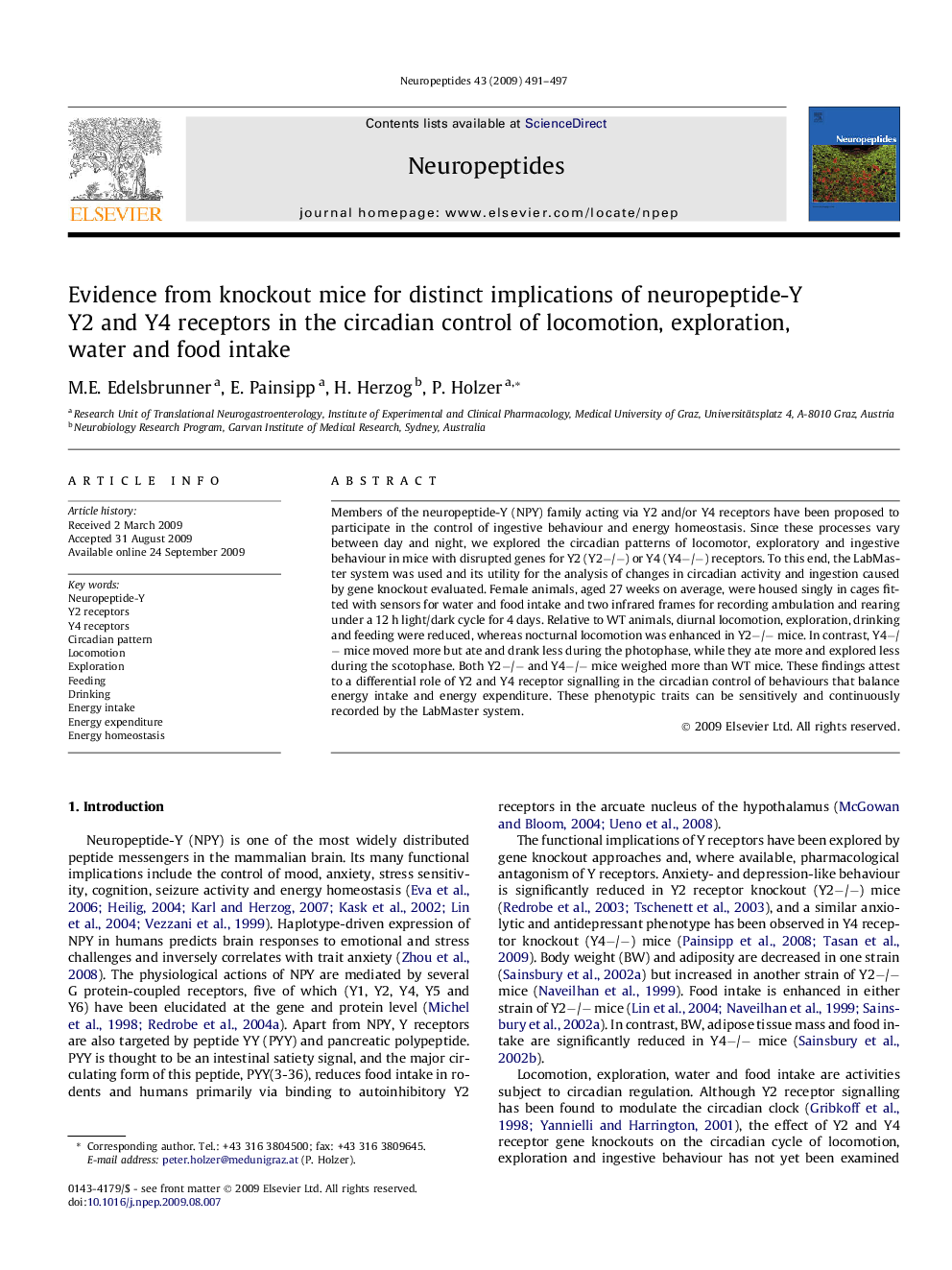| Article ID | Journal | Published Year | Pages | File Type |
|---|---|---|---|---|
| 2808555 | Neuropeptides | 2009 | 7 Pages |
Members of the neuropeptide-Y (NPY) family acting via Y2 and/or Y4 receptors have been proposed to participate in the control of ingestive behaviour and energy homeostasis. Since these processes vary between day and night, we explored the circadian patterns of locomotor, exploratory and ingestive behaviour in mice with disrupted genes for Y2 (Y2−/−) or Y4 (Y4−/−) receptors. To this end, the LabMaster system was used and its utility for the analysis of changes in circadian activity and ingestion caused by gene knockout evaluated. Female animals, aged 27 weeks on average, were housed singly in cages fitted with sensors for water and food intake and two infrared frames for recording ambulation and rearing under a 12 h light/dark cycle for 4 days. Relative to WT animals, diurnal locomotion, exploration, drinking and feeding were reduced, whereas nocturnal locomotion was enhanced in Y2−/− mice. In contrast, Y4−/− mice moved more but ate and drank less during the photophase, while they ate more and explored less during the scotophase. Both Y2−/− and Y4−/− mice weighed more than WT mice. These findings attest to a differential role of Y2 and Y4 receptor signalling in the circadian control of behaviours that balance energy intake and energy expenditure. These phenotypic traits can be sensitively and continuously recorded by the LabMaster system.
